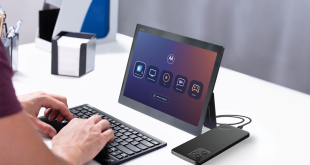Following the news that Microsoft is to acquire sections of Nokia in a €5.44 billion (£4.61 billion) deal, the industry has been voicing its opinions.
Jeremy Davies, CEO and co-founder of Context, which tracks the retail market for consumer electronics and technology, sees the move as a “game changer” as Microsoft’s new presence in the hardware market will bring it into line with Apple and Google.
Davies told PCR: "There are some that say Stephen Elop was on a secret mission ever since he joined Microsoft to get this to happen – of course that’s gossip but the move can be seen as inevitable.
"This purchase by Microsoft is a game changer and it now puts the once software-only company firmly in the hardware business, a place it has to be in to compete with Apple and Google, and most importantly to be able to leverage the huge Windows asset across a variety of platforms while reducing dependence on PCs."
Telecoms analyst CCS Insight shares some of Davies’ beliefs, seeing Microsoft’s firm push into hardware as a "bold, but necessary gamble".
"Mobile needs to be a cornerstone of Microsoft’s business for future success,’ Ben Wood, Chief of Research for CCS Insight, said in a press release, seeing Microsoft as "left with few alternatives" if it wishes to remain in the smartphone market.
"This is by no means a silver-bullet solution to Nokia and Microsoft’s current difficulties," Wood added. "But the move should be positive for bth companies. A more integrated approach will help ovecome some of the challenges Nokia and Microsoft have faced as independent entities."
Meanwhile Juniper Research acknowledged Nokia’s former power as a mobile phone producer, while also expressing that the once-iconic brand has struggled to break into the smartphone market, losing 65 per cent of smartphone sales between 2010 and 2012.
“While the acquisition of Nokia provides Microsoft with a much needed uplift and presence in the mobile sector,” stated a Juniper press release, “integrating these new assets, brand building and increasing market share will be the real challenge.”
Despite this, Juniper sees Microsoft’s purchase as a “key strategy to expand and strengthen its strong mobile and fixed device ecosystem,” and comments upon its expectation that Microsoft will move into wearable devices soon.
Like Juniper, Strand Consult research commented upon Nokia’s decline in the smartphone market “from being the leader to a bit part actor,” focusing on the challenge of competing with iOS or Android.
Strand Consult observed that, with its Devices & Services arm gone, “Nokia, once a global powerhouse, has been reduced to an infrastructure company with patents and Navteq maps.”
For Microsoft, Strand Consult says that the move is an attempt to maintain their presence in the smartphone market – “If Nokia had been bought by Lenovo, Huawei or another player, Microsoft’s role in the mobile world would have been reduced to nothing in a short time”
Regardless, Strand Consult sees the end of “the Nokia saga as marking the end of the mobile phone era, and the beginning of a new age when IT and internet companies define the hardware and services of the mobile device ecosystem.”
 PCR Tech and IT retail, distribution and vendor news
PCR Tech and IT retail, distribution and vendor news


